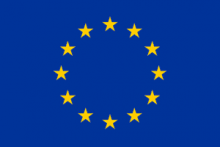Materials from PROSEU Webinar on "Prosumers in the EU Clean Energy Package and future national plans" on 18 September 2018
Webinar presentations:
The EU Clean Energy Package (Winter Package), new national planning requirements and prosumers, Marta Toporek, ClientEarth
How can NECPs influence national policies on prosumers?, Dirk Vansintjan, RESCoop Europe
Prosumers – how to define objectives and trajectories?, Kristian Petrick, eco-union
How can prosumer initiatives be involved in the process of NECPs drafting?, Sebastian Bechtel, ClientEarth
Webinar recording:
Materials from PROSEU Webinar on "Understanding renewable energy prosumers" on 21 May 2019
Webinar presentations:
Highlights from the PROSEU survey on collective Renewable Energy Prosumers in the EU, Lanka Horstink, University of Porto
Clean Energy Package: what are renewable and citizens energy communities, Josh Roberts, RESCoop Europe
Learning of City-zen’s Virtual Power Plant demonstration, Marjolein Bot & Martijn van Eerden, City-Zen Amsterdam Initiative
Klimakomune Saerbeck – People.Projects.Profit, Guido Wallraven, Klimakommune Sarebeck
Webinar recording:
Materials from Webinar on "The importance of National Energy and Climate Plans for the development of prosumer initiatives in the EU", co-organised with the Community Power Coalition on 11 June 2019
Webinar presentations:
Introduction to NECPs for prosumers and energy communities, Marta Toporek, ClientEarth
Prosumers and energy communities in draft NECPs of nine PROSEU countries, Kristian Petrick, eco-union
Provisions related to energy communities in all NECPs, Josh Roberts, REScoop; Claire Gauthier, European University Viadrina
What now? - The NECP policy processes, Esther Bollendorff Friends of the Earth Europe/Community Power Coalition
Example of other analysis of draft NECPs, Veerle Dossche, CAN Europe
National Energy and Climate Plans (NECPs), prosumers, energy communities – A selection of available studies and assessments published in 2019
Webinar recording:
"Policy Principles for Prosumers – What final NECPs should contain regarding energy communities and the rights of energy citizens", 3 December 2019
Presentations
Principles for Prosumer Policies, Kristian Petrick, eco-union
Indicative progress in preparing the final National Energy and Climate Plans (NECPs), Veerle Dossche, CAN Europe
Webinar recording:
Materials from "Designing the future of prosumer business models"
Presentation on Challenges of Prosumer business models - balancing the needs of communities and the energy system, Donal Brown, University of Leeds
Highlight #1: Prosumer business models in 2050, Jeffrey Hardy, Imperial College London
Highlight #2: Polling on fees and surcharges, Moritz Ehrtmann & Timon Becker, Leuphana University of Lüneburg
Highlight #3: Digitalisation, Lars Holstenkamp, Leuphana University of Lüneburg, with input from: Michael Merz, PONTON GmbH & Tina Hadler, Coneva GmbH
Highlight #4: Sector coupling, Iris Behr, IWU Institut für Wohnen und Umwelt GmbH
Highlight #5: Possibilities for impact: the implementation of the Renewable Energy Directive II (RED II) in 2020, Kristian Petrick, Eco-union
Materials from "Prosumers for energy inclusiveness: leaving no-one behind"
Introduction, programme & closure by Jeremie Fosse, Eco-Union & Julia Wittmayer, DRIFT
Highlight #1: Harnessing the Power of the Crowd for the Energy Transition, Nuno Brito Jorge, Coopernico
Highlight #2: Practicing energy inclusiveness with invited pitches on inclusiveness challenges:
- Energy poverty as a social priority in the context of a just energy transition, Marta Garcia, CEO, ecoserveis
- Renewable energy - a gender perspective, Christine Lins, Global Women‘s Network for the Energy Transition
- Energy literacy - supporting energy inclusiveness?, Mojca Drevenšek, Network on energy literacy
Highlight #3: Organising energy inclusiveness with pitches on:
- Heating commons: heating for all, Kirsten Notten, co-initiator ‘Buurtwarmte’ & community-energy worker in Assendorp, Zwolle
- Inclusiveness of organisational models, Marco Gütle, Bündnis Bürgerenergie, DE
Highlight #5: Possibilities for impact: the implementation of the Renewable Energy Directive II (RED II) in 2020, Kristian Petrick, Eco-union
Materials from "Future energy systems: prosumer islands or a new IoT community?" on 24 June 2020
Introduction: PIA scene, programme & objectives of the day by Julia Wittmayer (PROSEU/DRIFT)
Setting the (EU) regulatory scene by Kristian Petrick (PROSEU/Eco Union) and Marta Toporek (PROSEU/ClientEarth)
Highlight #1: Technical scenarios of renewable power integration, a multi-level perspective. Exploring the full potential of prosumer technology by Borna Doracic (PROSEU/UNIZAG FSB) & Nanda Naber (PROSEU/CE Delft)
Highlight #2: Enabling Energy Islands or Full Connected Communities
System Integration of Prosumers: system effects and costs by Andreas Jahn (Regulatory Assistance Project, DE)
Electricity sharing from a regulatory perspective by Xavier Hansen (Institut Luxembourgeois de Régulation, LUX)
Smart Grids Energy Systems by Florijn de Graaf (Spectral, NL)
How can or should the local governments support? by Alix Bolle (Energy Cities, BE/EU)
Highlight #3: Technical recommendations based on polls and feedback on the quantitative output by Swantje Gährs & Lena Pfeifer (IÖW)
Recording of "Lunch & Learn" Webinar on Local Electricity Business Models in Europe of 19 May 2020.
Related Publications
Business models for prosumers in Europe, by Hall, S.; Brown, D.; Davis, M.; Ehrtmann, M.; Holstenkamp, L.
This report explores the different business models being adopted to enable renewable energy generation and self-consumption in the European Union. Individuals, businesses and energy communities that install renewable energy generation and self-consume some of that generation are called ‘prosumers’. Prosumers may be householders, businesses or communities whose primary business is not energy generation.
Prosumers in the post subsidy era: an exploration of new prosumer business models in the UK, by Donal Brown, Stephen Hall, Mark E. Davis
This paper explores the evolving renewable energy ‘prosumer’ phenomenon in the United Kingdom (UK). It identifies and evaluates how prosumer business models can exist beyond direct subsidy and the range of prosumer business model archetypes currently in operation. Through a series of in-depth interviews and document analysis, the paper identifies the key opportunities and challenges for these innovative energy business models.
Recording of "Lunch & Learn" Webinar on Homes, Heat and Retrofit - A Green New Deal for Bristol of 20 May 2020
Related publication
Business models for residential retrofit in the UK: a critical assessment of five key archetypes, by Donal Brown
The comprehensive retrofit of residential buildings has significant potential to reduce carbon emissions and provide additional heath and economic benefits. However, in countries such as the UK, much of this potential is yet to be realised. This paper shows how the concept of ‘business models’ (BMs) can be a powerful tool for understanding the challenge of improving energy performance and reducing carbon emissions in residential buildings. Through a review of contemporary literature and 18 semi-structured interviews, the paper describes and compares five distinct BM archetypes. These models range from the traditional approach to highly innovative energy service contracts.
Recording of "Lunch & Learn" Webinar on Financing Bristol's Energy Transition of 2 June 2020
Related Publication
Finance and justice in low-carbon energy transitions, by Stephen Hall, Katy E. Roelicha, Mark E. Davis, Lars Holstenkamp
This paper uses a comparative analysis of two developed economies to explore how ‘alternative’ forms of finance operate in each nation’s energy investment landscape. We find alternative finance is often set in opposition to commercial capital. Alternative finance in both nations is motivated by financial justice outcomes that are poorly understood in current energy policy. Our findings suggest that 6 principles are key to ‘just’ energy finance: affordability, good governance, due process, intra-generational equity, spatial equity, and financial resilience. Energy policy that seeks to mobilise capital, should take account of all six principles.


































